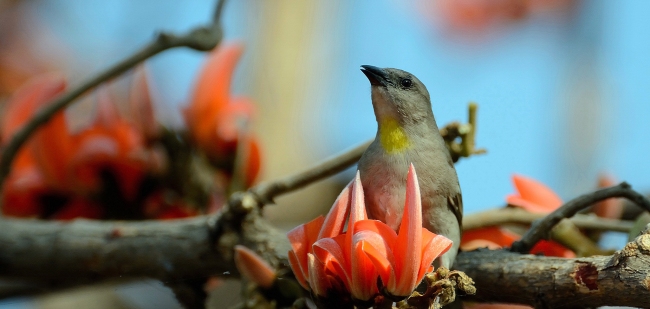Guest Author: Dr. Fiona McKenzie
Imagine you were throwing a rock. Where the rock ends up will pretty much depend on you – your strength, aim and coordination. You could easily predict where the rock will go and the trajectory could be accurately modelled. Now imagine throwing a live bird (this isn’t encouraged in practice). Even though the bird is subject to the same laws of physics as the rock, there is no way for you to know for sure where it will end up. Its trajectory is not something that can be easily predicted. You could try weighting the bird down to control its path, but this destroys the capability of the bird.
Why does the difference between birds and rocks matter? It matters because the way one would think about and work with a rock is different from the way one would (hopefully) interact with a bird. Too often we apply the wrong approach to the right idea. REDD+ is like the bird. While there were many expectations, fears and predictions when it was officially incorporated into the Bali Action Plan in 2007, it has since behaved in ways we didn’t expect.
This is because REDD+ has the properties of a complex adaptive system. A simple system is relatively stable and has straightforward cause-and-effect relationships (a bit like a rock). In simple systems, it is possible to analyse the parts of the whole at their most reduced or basic level in order to learn about the sum. A complex adaptive system is more like the bird. It exists within other interdependent systems and is driven by interactions between system components and governed by feedback. Its complexity comes from these patterns of interactions. It is constantly adapting. Results can be counterintuitive. You can make the changes you want, but you might not end up in the place you would expect. The whole truly is more than the sum of its parts.
Such complexity doesn’t have to be a liability. It can be an advantage, so long as we realise that we need to think and work differently in such contexts. What does this mean? It means that we need to be more aware of the patterns of interactions that characterise the whole and how these patterns create points of leverage or influence, often in unexpected places. We need leaders who can draw upon the emergent and self-organising nature of complex adaptive systems through facilitation, empowerment, evaluation and continuous re-calibration.
We need organizations (not just leaders) that can keep up with the dynamic nature of complex adaptive systems by being able to learn from and adapt to feedback. Learning requires experimentation, evaluation and reflection. Learning also requires taking risks and acknowledging failures. We need organizations (and individuals) that are willing to do both. This might require admitting uncertainty and taking on a portfolio of experiments. It may mean strategy becomes about setting a common vision or destination, but still creating room for a diversity of approaches in how to best get there. It definitely means creating organizations that can learn for themselves, based on real time feedback, continuously. In nature, if you don’t adapt you eventually become extinct.
There is no doubt that it will take time and commitment to develop the organizational skills and cultures needed. The good news is that there is a strong appetite for new ways of thinking and working. This was clearly evident at a retreat on collaborative cross-sectoral action (Smithsonian-Mason School of Conservation, Front Royal, USA), sponsored by UNEP and the UN-REDD Programme in December 2013. This is a start. The challenge is to ensure that this translates into action through ongoing high-level support for adaptive approaches that don’t fit the usual templates for planning and administration. Surely if anything were worth the effort, if would be REDD+.
This post is derived from a policy brief, Complex Adaptive Systems: Implications for Leaders, Organisations, Government, and Citizens.
Dr. Fiona McKenzie is an advisor and researcher with a background in agricultural and environmental policy and a PhD on farmer-driven innovation. She is an Honorary Associate in the Faculty of Humanities and Social Sciences, La Trobe University, Australia and a Strategy Advisor for the Australian Futures Project. She recently led a project with EcoAgriculture Partners and the United Nations Environment Programme (UNEP), funded by the UN-REDD Programme, on enabling cross-sectoral collaboration in the global food system. Previously, Fiona was part of the team that established the Terrestrial Carbon Group. Contact: fiona@fionamckenzie.com.au


